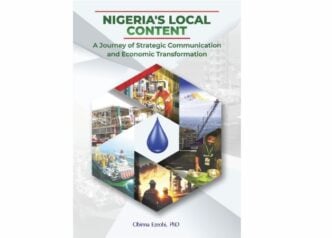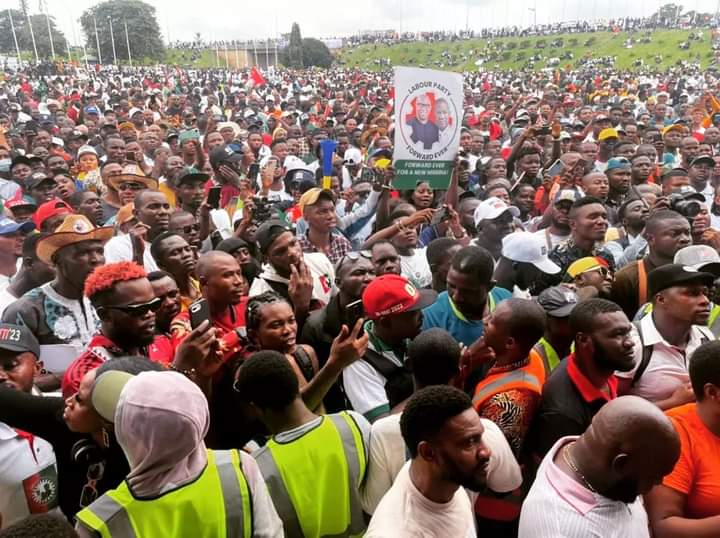BY SODIQ ADENIJI
Nigeria, Africa’s most populous nation with over 220 million citizens, is rich in resources and talent but ensnared in a cycle of systemic bad governance that has eroded public trust and stifled progress. As a result, corruption has cost the country an estimated $17 billion annually, leaving critical sectors underfunded. The persistent challenges stemming from bad governance—corruption, insecurity, and separatist movements—have far-reaching implications for Nigeria’s economic development. These failures undermine the principles of liberty, self-determination, and the pursuit of personal well-being, which are fundamental to a free and just society. Addressing these challenges is possible through robust governance reforms that prioritise transparency, accountability, and inclusivity to foster national stability and prosperity.
Corruption drains billions of dollars in Nigeria annually, diverting resources from critical sectors such as healthcare, education, and infrastructure, which hampers growth and job creation. If the government is really taking the fight against corruption seriously, then digitising public procurement and budget tracking systems is a crucial step that needs to be taken to foster transparency and accountability in Nigeria’s governance. Real-time monitoring platforms would enable citizens to oversee government expenditures, exposing potential misuse of funds and ensuring fiscal responsibility. For this to succeed, anti-corruption agencies like the EFCC must be granted autonomy and sufficient resources to investigate and prosecute corruption cases without political interference.
Estonia’s pioneering digital governance model serves as a compelling example, where systems like e-governance and e-procurement have minimised corruption by making public transactions accessible and traceable. Implementing a similar tailored system in Nigeria, supported by robust enforcement mechanisms, could dramatically enhance transparency, curb corruption, and restore public trust in government institutions. Such reforms would also signal a commitment to good governance, attracting foreign investment, and fostering economic growth.
Advertisement
The failure of governance in Nigeria manifests in the declining capacity of political leaders to recognise systemic risks such as election fraud, terrorist attacks, herder-farmer conflict, armed banditry, and police brutality, and put in place the necessary measures to navigate these challenges. Insecurity disrupts agricultural activities and trade, driving up food prices and discouraging foreign investment, further crippling the economy. Boko Haram’s insurgency, ethnic tensions, and mistrust, combined with Nigeria’s alarming 33 percent youth unemployment rate, have further fuelled insecurity, creating an environment ripe for violence and criminal activities.
Nigeria can tackle insecurity by empowering respected community leaders to lead local peace-building efforts while integrating technological solutions like drones and surveillance to deter crime. Tailoring Rwanda’s successful community policing model, which combines grassroots trust-building with cutting-edge technology to Nigeria’s socio-cultural context, can bridge divides, enhance security measures, and make communities active participants in their safety and development.
Additionally, government efforts to create jobs and promote inclusivity can reduce youth involvement in crime, addressing key drivers of insecurity. This would help bridge ethnic divides and enhance the legitimacy of security measures, making communities active participants in their safety.
Advertisement
Moreover, the rise of regional separatist movements such as the Biafra Republic, Oduduwa Nation, Niger-Delta Republic, and Arewa Republic—fuelled by marginalisation, unequal distribution of resources, and the undemocratic and arbitrary laws of the country—intensifies instability, deterring progress on a national scale. This risks further national fragmentation, as seen in global precedents such as Sudan.
To address this challenge, the government must initiate inclusive national dialogues that give all ethnic and regional groups a platform to express grievances and propose solutions. These dialogues should lead to constitutional reforms that ensure equitable resource distribution, fair representation, and the repeal of undemocratic laws that perpetuate marginalisation.
This comprehensive approach addresses long-standing grievances, ensuring that solutions are theoretical and embedded in the nation’s governance framework, fostering unity and sustainable development. By codifying these agreements, the government demonstrates sincerity in addressing disparities, thus building trust and promoting lasting peace.
Nigeria’s challenges are deeply rooted in bad governance, but not insurmountable. The country can be rebuilt through innovative solutions such as community-driven security initiatives, transparent digital platforms, and binding national dialogues. The time to act is now; a concerted effort from all sectors—government, private, and civil society—can unlock Nigeria’s immense potential, transforming it into a beacon of progress and prosperity for Africa.
Advertisement
Sodiq Adeniji is a writing fellow at African Liberty.
Views expressed by contributors are strictly personal and not of TheCable.










